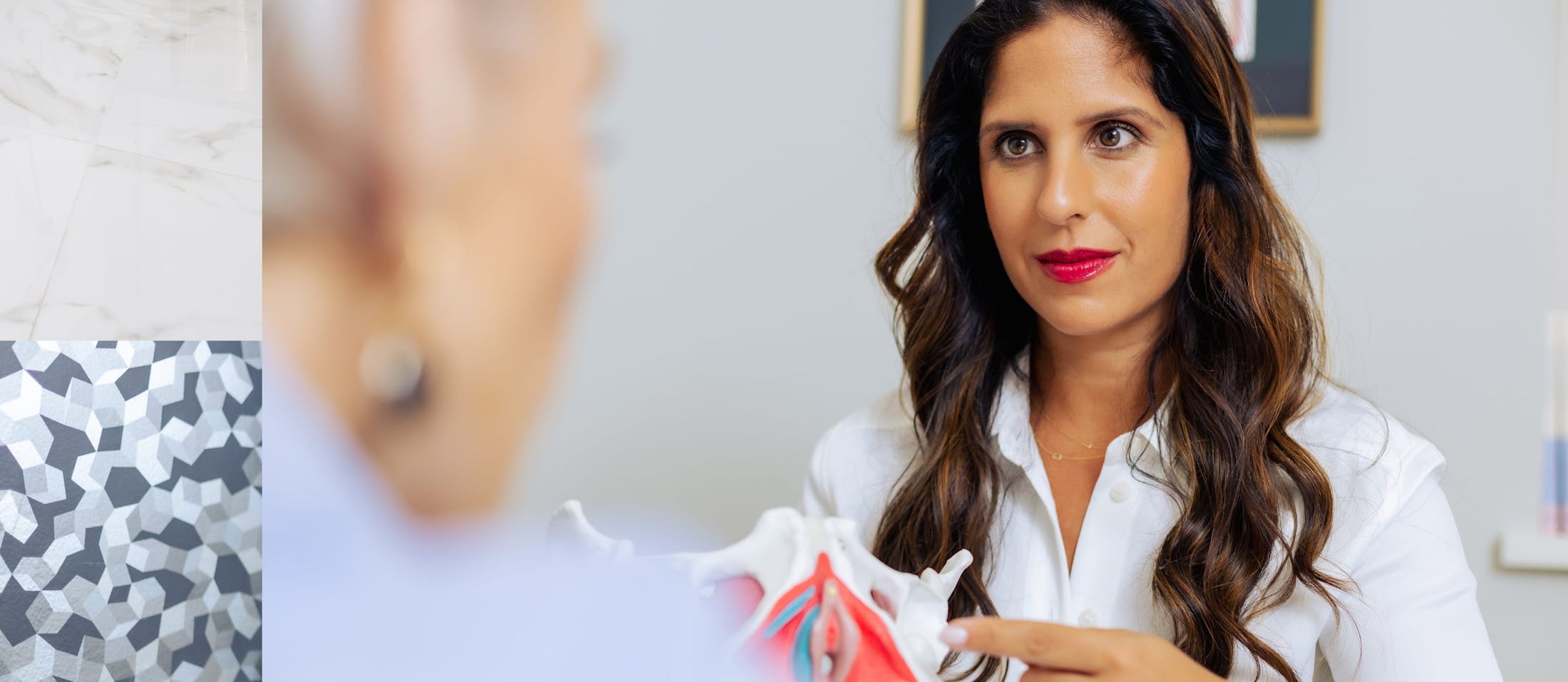
Sex should never hurt. Read that again. It might seem like an obvious statement, but almost a third of women will experience painful sex (or dyspareunia) at some point in their lives. From vaginal dryness and itching to throbbing and aching, there are many different kinds of pelvic pain that can occur during intercourse. But no matter which kind of pain you’re feeling, you do not have to accept it as a part of your life.
At Pelvic Pain Doc, we believe everyone deserves to enjoy their lives free from pain. This applies as much to your sex life as it does to anything else you do. Sex is about pleasure, connection and having fun — but pelvic pain can make intercourse unenjoyable, uncomfortable or downright impossible. If you’re experiencing pain during sex, here’s what might be causing your discomfort and how a pelvic pain specialist can help you regain control of your sex life.
Understanding Painful Sex
Pain during sex looks and feels different for everyone. For some, it’s a rare occurrence or it only happens once; for others, it happens every time they have sex. Depending on the underlying cause of painful sex, some women will feel pain only during intercourse while others have chronic pain that makes them want to avoid sex altogether.
The first thing to understand about painful sex is that it’s not your fault and you’re not alone in this. But even though painful intercourse is extremely common, it doesn’t mean it’s normal. In most cases, painful sex is a sign of a more serious condition. Getting your pain diagnosed by a pelvic pain specialist can help you begin to work through it.
What Causes Pain During Sex
There’s no one-size-fits-all diagnosis for pain during intercourse. Pelvic pain conditions, hormonal changes and emotional stress can all contribute to a painful sex experience. Here are some of the most common causes of pain during sex:
Vaginal Dryness: This is the most common cause of pain during sex, particularly for menopausal and post-menopausal women. Dryness can not only lead to a painful sexual experience, it also disrupts the pH balance of your vagina. Without sufficient lubrication, pain during sex is inevitable and it also allows bad bacteria to thrive, which can lead to subsequent infections and further pain.Pelvic Floor Dysfunction: When the muscles in your pelvic floor (the ones you use to do Kegel exercises or to stop the flow of urine) get tight, it can cause sexual activity to be extremely painful. In fact, the muscles can get so wound up that even inserting a tampon becomes impossible. There are medications, life-style modifications, pelvic floor physical therapy and certain procedures that can help to relax these muscles.Interstitial Cystitis/Bladder Pain Syndrome: This condition can also be a cause of painful intercourse. Why? Because penetration that hits a bladder that’s already “tender” and “painful” is absolutely not comfortable. In addition, 70% of patients with interstitial cystitis have concomitant pelvic floor dysfunction and the combination of the two makes sex…well, OUCH!Vestibulodynia: Vestibulodynia or vulvodynia is characterized by chronic pain at the opening of the vagina without any apparent physical cause. This condition can cause stinging, burning, swelling, itching, rawness and pain during sex.Infections: This could include yeast, bacterial, sexually transmitted or urinary tract infection. Infections cause inflammation of the genital region which leads to discomfort and painful intercourse.Psychological Factors: Our sexual response cycles are highly linked to our emotional state. Stress, anxiety and depression can all interfere with how we experience sexual stimuli. If you’re having relationship struggles or any kind of emotional upset, it could manifest itself as physical pain during intercourse.
How to Treat Pain During Intercourse
Many women who experience painful sex are afraid to seek help because they think there’s something wrong with them or that their pain is a normal part of their life. We can’t stress this enough: pelvic pain is never your fault. It’s a symptom of a condition — physical or psychological — that can be treated by a professional.
There are many ways to effectively treat pelvic pain during sex. A pelvic pain specialist, like Dr. Sonia Bahlani, has the expertise to help you understand why pain is happening and how to work through it. First, your doctor will go through your medical and sexual history with you to identify patterns and potential underlying conditions. A pelvic exam can also help your pelvic pain doctor understand your specific symptoms and experience. Depending on the findings, you may need to undergo further tests to find out why you’re having pain during sex.
Once your doctor has determined what’s causing your pelvic pain, she’ll create a holistic treatment plan to help you overcome your symptoms. This may include physical therapy to relax your pelvic floor muscles, medications to treat any infections or counseling to work through emotional factors that may cause pain. Your pelvic pain specialist may also recommend at-home remedies for painful sex, such as self-massage of the vagina, lubricants and open communication with your partner.
Getting to the root of what’s causing pain during sex doesn’t have to be complicated. With Pelvic Pain Doc, you’re safe to talk about your experience and Dr. Bahlani will support you every step of the way. Ready to find out why you’re having painful sex? Book a consultation today and get back to enjoying sex, the way it should be.

